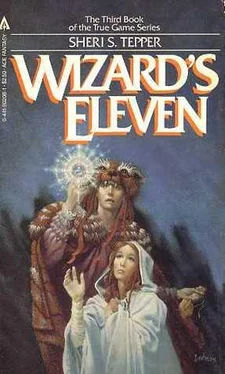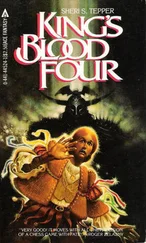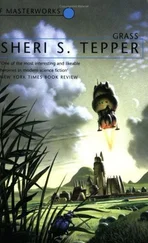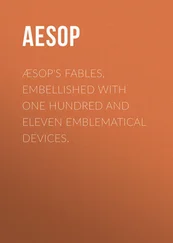Sheri Tepper - Wizard’s Eleven
Здесь есть возможность читать онлайн «Sheri Tepper - Wizard’s Eleven» весь текст электронной книги совершенно бесплатно (целиком полную версию без сокращений). В некоторых случаях можно слушать аудио, скачать через торрент в формате fb2 и присутствует краткое содержание. Жанр: Фэнтези, на английском языке. Описание произведения, (предисловие) а так же отзывы посетителей доступны на портале библиотеки ЛибКат.
- Название:Wizard’s Eleven
- Автор:
- Жанр:
- Год:неизвестен
- ISBN:нет данных
- Рейтинг книги:5 / 5. Голосов: 1
-
Избранное:Добавить в избранное
- Отзывы:
-
Ваша оценка:
- 100
- 1
- 2
- 3
- 4
- 5
Wizard’s Eleven: краткое содержание, описание и аннотация
Предлагаем к чтению аннотацию, описание, краткое содержание или предисловие (зависит от того, что написал сам автор книги «Wizard’s Eleven»). Если вы не нашли необходимую информацию о книге — напишите в комментариях, мы постараемся отыскать её.
Wizard’s Eleven — читать онлайн бесплатно полную книгу (весь текст) целиком
Ниже представлен текст книги, разбитый по страницам. Система сохранения места последней прочитанной страницы, позволяет с удобством читать онлайн бесплатно книгу «Wizard’s Eleven», без необходимости каждый раз заново искать на чём Вы остановились. Поставьте закладку, и сможете в любой момент перейти на страницу, на которой закончили чтение.
Интервал:
Закладка:
Having thus done what we could against the certainty of Huld’s coming, we rode forward once more, to the north where Yggery’s charts identified the Wastes of Bleer though it was difficult to imagine a place more waste-like than that we traveled already.
We crossed long lines of scattered ash which led away to the south. “There’s a hole there that would hold a battle Demesne,” said Queynt. “Where the moonlet fell, spewing this ash in trails across the stone. In time the thorn will hide it…”
Little thorn grew on the flat, though the canyons were choked with it and devil’s spear grew thickly under shelter of the stones. Else was only flat, gray and drear. The farther north we went, the more fantastic the twisted stone, convoluted, bizarre, no longer looking like isolated bones or joints but like whole skeletons of dream monsters. It was like moving in a nightmare, dreamy and echoing. Had it not been for the wide sky stretching above us to an endless horizon, it would have felt like a prison beyond hope of release.
It was almost dusk when we came to the chasm, knife edged and sheer. At either end of it a mountain had sprawled into an impenetrable tumble of stone. “Abyss opens, mountains fall,” sang Queynt under his breath. I knew it was not the first time he had seen it. “It opened at the time of the cataclysm,” he said. “Before that time, one could have ridden on into the wastes.”
“Tomorrow,” I said wearily. “There is no sense worrying at it now. We have other things to do.”
And, indeed, there was enough to do for the evening. King Kelver and I would make his obligatory visit to the Mirrormen, he ostentatiously, I secretly to guard him. With many pricked fingers and scratched arms, we hacked enough thorn for a fire. The King had speared two ground-running birds which we roasted and ate with hard bread and dried fruit. The abyss had stopped us early, so that we had finished our meal before dark, the light falling red behind the line of mountains beyond Graywater. We were gazing at the sky thinking our own gloomy thoughts when the giant strode into our view against the bleeding light.
He was coming toward us. As we had seen him from the gentle valley of the Boneview River, so we saw him again, this time from a frontal view. He strode toward us, towering against the sky, shredding and fraying at his edges as though blown by a great wind, ever renewing his outline, his gigantic integrity of shape and purpose. The sun sank behind him; stars showed through him as he stalked toward the place where we sat wordless and awed. There was something so familiar about him, something so close to recognition. I strained at the thought, but it would not come.
At last the giant came so close the shape of him was lost. We felt the cold, ill wind blow around us, heard that agonized voice, “Kinsman, kinsman, find the wind…” and then it had gone on past. We turned to follow its progress over the abyss and beyond where it changed, tumbled, seethed into another shape, a tall, whirling funnel of darkness which poured down into some hidden pocket of the world.
In that instant I saw what I had not seen before, how the shredding edges of the great form resembled a furry pelt, ends flying, how the great shape shifted, Shifted …
“Thandbar,” said two voices at once. Mine, and Queynt’s.
There was a long silence full of waiting and strain. Then Queynt said, “It is fitting I should recognize him, Peter. I knew him. Now, how it is that you would know him?”
I was not sure that I should answer. Silkhands gave me no help, merely staring at me owl-like across the fire. It was Jinian who finally said, “Tell him, Peter. If you cannot trust Queynt, you cannot trust any in this world and we may as well give up.”
It was there, then, in the dusk of the Waeneye, beside a dying fire that I set the Gamesmen of Barish upon a flat stone, reserving only the blue of Windlow to my secret self. They stood under the eyes of all, but it was only Vitior Vulpas Queynt who leaned above them with tears flowing down his face as he touched them one by one. I wanted to strike him, wanted to seize the Gamesmen and flee into the dark. I could feel the serpent within, knotting and writhing. Only Jinian’s eyes upon me, her hand upon my knee, kept me quiet as the man picked them up, turned them, called them by name.
Oh, Gamelords, but they were mine. Mine. Not his.
In a little time, the worst of the feeling faded, and I was able to speak and think again. I had to tell him I could speak with them. Read them, and he looked at me then with such awe I felt uncomfortable.
I tried to explain. “It is my brain they use to think with, Queynt. Otherwise they are as when they were made. I have been under the mountain of the magicians. I have seen how they are made. Have you?”
“Oh, yes, Gamesman,” he affirmed, no longer joking or voluble. “I have been beneath the mountain. I went there last some decades ago to search for Barish.”
We waited. He seemed to debate with himself whether we should be enlightened or not. At last it was Jinian again who spoke, as she had to me. “Queynt, we’ve trusted you. You’ve hinted to us and hinted to us a hundred times asking if we know what you hope we know. Now is time to set all mystery aside. There may have been reasons to stay hidden, but they are in the past. Now we must trust one another.”
“Barish and I,” he said, “were brothers.”
He stood to walk to the side of the abyss, stood there peering northward as he talked, seeming not to like the sight of our faces. “We came to this world together. You know that story. If you do not, it is not important now…
“Well, let it be said. We came, Barish and I, and a host of others. We came to serve a lie. There were wives who were loved and children who were loved and a world approaching war with another world which neither would win — well. Some powerful persons of that world sought to send certain loved ones away to safety. They needed an excuse. A fiction. A lie…
“There was a woman, a girl. Didir. Some thought she could read minds. Others thought not. The people of her home place were afraid of her, true, naming her Demon and Devil. The powerful men of the place said they would send researchers away to another place to find out about this strange Talent she had. In later time it may prove useful. However, the research may be long, so it will be necessary to send support staff and agriculturists and bio-engineers and technologists and so on and so on.’ Their wives were the agriculturists and their children the bioengineers. Among them were a few, a very few, who really knew something about such matters.”
“You,” said Jinian. “And Barish.”
“I,” he admitted, “and Barish. And a few others, though most of the so called scientists were second rate academics caught in a strange web of vanity and ambition. They stayed under the mountain, caught up in their dreams of research — research on `monsters.’ When we would not let them have Didir, they created monsters of their own. And we, the rest of us, came out from the mountain into this new, supposedly uninhabited world…”
“Supposedly,” prompted Jinian.
“Well, supposedly. There were living things here. There were intelligent creatures here. There was material the bio-engineers could use, mixes, crosses, deliberate and inadvertent. Children began to be born with many Talents. The Talent of Didir proved to be real. Barish said it was simply evolution, a natural evolution of the race. I said no, it was this world, this place.”
He was silent for so long after that that Jinian had to prompt him again.
The rest of us were silent, afraid if we spoke we might stop him, interrupt his disclosure and never learn what he would tell us.
Читать дальшеИнтервал:
Закладка:
Похожие книги на «Wizard’s Eleven»
Представляем Вашему вниманию похожие книги на «Wizard’s Eleven» списком для выбора. Мы отобрали схожую по названию и смыслу литературу в надежде предоставить читателям больше вариантов отыскать новые, интересные, ещё непрочитанные произведения.
Обсуждение, отзывы о книге «Wizard’s Eleven» и просто собственные мнения читателей. Оставьте ваши комментарии, напишите, что Вы думаете о произведении, его смысле или главных героях. Укажите что конкретно понравилось, а что нет, и почему Вы так считаете.












